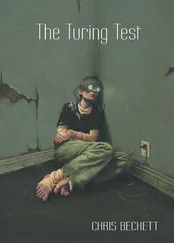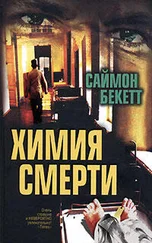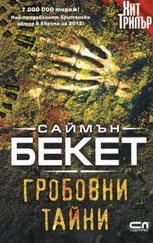When I reached what I’d assumed to be the bottom of the stairs, I discovered to my surprise that I was still surrounded by concrete walls. It was simply a landing, and the stairs just turned and continued downwards. Even more strangely, the same thing happened another storey down: I reached a second landing, and there was still nowhere else to go but either down or back up again. Clearly this was no ordinary cellar. I must admit I began to feel rather scared, although it would have been difficult to say exactly why.
Three storeys down, further below the ground than the roof of my house was above it, things changed. I could hear the absence around me straight away and, when I pointed my torch outwards, a whole corridor revealed itself in front of me, with doors down either side. How long the corridor was I couldn’t tell at that point, but it clearly extended beyond the boundary of my house, and was too long for the beam of my small torch to reach the end of it. Sweeping the beam around me, I soon discovered that it wasn’t the only one. There were actually four corridors radiating out from the stairway at right angles to one another. I noticed a light switch in the corridor in front of me, and, not really expecting it to work, I flipped it on. To a distance of some fifty metres, the corridor was suddenly as bright as any normal well-lit room. There were blue doors down each side of it, five metres apart, and after every second door there was an opening into a side corridor. Beyond fifty metres, the lights hadn’t come on, so the corridor disappeared into darkness. I soon established that the other corridors were just the same, and flipped on lights in all of them. But there was more. The staircase continued downwards, and when I shone my torch down the narrow well, I found that, as with the corridor, it continued beyond the distance that my beam could reach.
I felt really afraid then, a strange, pure terror, as if I was in one of those nightmares where nothing actually happens except for fear. Certainly my alarm didn’t come from a sense of physical danger: there was no threat to myself that I could see. Nor did it come from a feeling that I was doing something that might get me into some kind of trouble. Why shouldn’t I descend a staircase beneath my own house? No, as I say, it was a pure terror, a distillation of terror, that arose from my complete inability to make any sense at all of what I was looking at. What possible purpose might this place have? Who could have made it? How could it possibly have remained undetected up to now, and why was it underneath my house? It wasn’t just having no answers to these questions that was frightening, it was the fact that I had no sense at all of where an answer might be found.
But it was too late to turn back. Even if I’d climbed straight back up those stairs at that point, rejoined the world above and nailed the floorboards firmly down, my house would have become an entirely different place. Until today it had been a straightforward little semi in an ordinary street, with two bedrooms, a bathroom, a kitchen and a living room, but it could never go back to being that, any more than a piggybank-full of one-pound coins could ever again mean the same to a National Lottery winner. My house was a mere pimple now, a tiny outcrop, a shoebox made of bricks, perched above an enormous hidden space which – such was my modest estimate at the time – quite probably had more rooms in it than my entire street.
I was terrified and disorientated, but, even then, I sensed the possibilities. Even at that early stage, scared as I was, I had an inkling that what I was now experiencing as fear might quite readily and easily be repackaged as an intense, almost sexual, excitement.
I went to the first door on the right and, feeling rather foolish, knocked on it. There was of course no answer, but I found this in itself unnerving – it’s interesting, when you think about it, how ready we are to reinterpret simple absence as sinister brooding presence – and I stood in front of it for a full minute before I’d gathered the courage to turn the handle. The room was completely empty. I flicked on the light switch inside the door and found the walls pristine and white, the floor covered in a plain grey lino that looked as if no one had ever stepped on it. There was no furniture, no trace of human occupation, but this one room was bigger than the living room in the little house three storeys above me that I supposed was still up there, although it already seemed almost irrelevant to my life.
I stayed down there for seventeen hours in the end, without food or drink, wandering from corridor to corridor, room to room, and descending at least eight storeys below the ground without any sense that I was getting near the bottom. I became utterly enchanted, so immersed in the experience that I simply couldn’t bear to interrupt or dilute it by returning even for a short while to the ordinary little world outside. When I could no longer ignore my aching bladder, I simply pissed in the corners of rooms, making a mental note to bring down a bucket and mop.
The rooms were arranged in blocks of four surrounded by corridors, and each room was exactly the same, with white walls and grey floors. Each time I opened a door I felt a frisson of anticipation and fear, wondering whether this time there’d be something there to see. Even a piece of furniture would have been a shock, or a different colour paint, let alone a human being, another mind, sitting there quietly, waiting. But I found nothing to disturb the pristine uniformity.
I think in fact that the very absence of anything new was the thing that kept me going so long, flicking on light after light after light, opening door after door. It was maddening to think there might possibly be a room I’d not yet seen that was different from the others, but at the same time, it was actually very soothing to be finding nothing at all, to be encountering, over and over again, the same calm vacancy, the same pure space, like unused graph paper uncluttered by pencilled lines or curves. The rhythm of that, the monotony of it, even almost its tediousness, was strangely compelling, like popping bubblewrap, or playing a fruit machine, or reading a newspaper you’ve already read many times from one end to the other. And I think it made manageable what would otherwise have been simply too much for me to contain.
It wasn’t until 4 in the morning that I finally emerged, exhausted, dizzy with hunger, and parched with thirst. How poky my little living room seemed, with the furniture piled up at one end of it, and my own ghostly reflection looking back at me from the window whose curtains were still drawn back from the morning. How dreary and ordinary that streetlamp looked across the road, those parked cars, that hedge, that brass letterbox glinting meaninglessly in the electric light. I quickly snatched the curtains closed, then gobbled some tuna straight from the tin, with three ungarnished pieces of white bread and a warm bottle of beer.
I lay down on my bed after that, but I was far too agitated to be able to settle properly into sleep and, even in the short periods when I briefly nodded off, my dreams were simply a continuation of my waking experience. I was still opening doors, one after another, I was still looking into rooms. And then I’d wake and realise that it really was down there, the cellar, the corridors, the empty rooms. Several times I was on the point of abandoning the idea of rest and heading back underground, but I held myself back and, about the time that daylight first began to seep in round my curtains, I finally succumbed to exhausted sleep.
I was woken at 9.30 by my neighbour Dave pounding on my front door.
‘Are you alright there, mate?’
I blinked at him. He didn’t seem to notice he’d woken me. ‘Yes, I’m fine.’
Читать дальше












